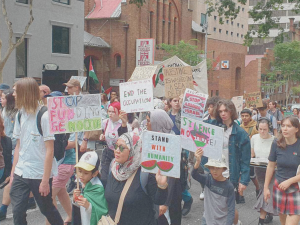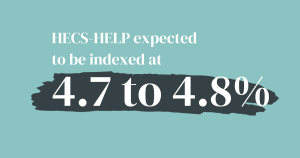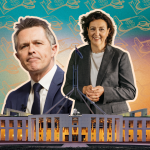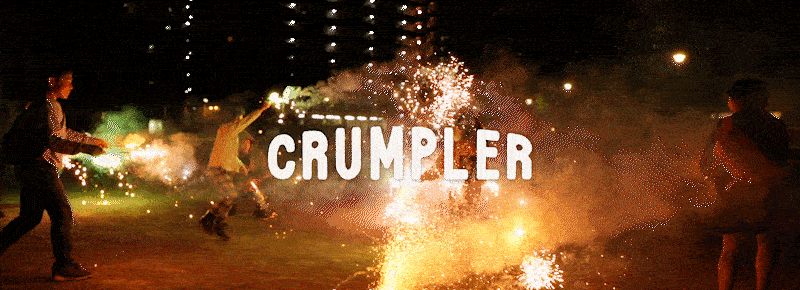Welcome to Glass’ interview series with the Brisbane Lord Mayor candidates! In these conversations, we dive into the issues that are important to students and ask each candidate why they deserve your vote. Our aim? To make sure that the QUT student body knows what’s going on in your community, so you can make an informed decision.
This interview is with Independent candidate, Gilbert Holmes.
What is your vision for the future of Brisbane?
My vision for Brisbane is to build local governance and economic capacity through neighbourhoods, suburbs and town centres. This supports more local patterns to daily life, and builds connection to place and community. Brisbane to move toward becoming a city-state, relatively self-reliant and politically autonomous.
What are your plans to revitalise the Brisbane CBD?
I plan to create natural, human-friendly spaces through the CBD, and to support a culture of creative expression and civic engagement.
How will you tackle the housing crisis?
If housing is seen as a speculative investment, it will continue to become increasingly unaffordable. Policies that help reduce the relative cost of housing include; BCC could run a construction company to supply housing at cost, helping to provide a price benchmark. Neighbourhood, suburb, town, city governance can supply/manage boarding houses and other units to support the social need.
Do you have any plans to improve the public transport system?
Diverse, vibrant local economies to the neighbourhood scale allow govt to offer policies such as a local job guarantee and reduce the need for commuting. This can also support services such as microbuses and commonly owned vehicles. Otherwise in general, I support light rail or other alternatives to the widespread use of private vehicles.
What policies do you have to lessen the cost-of-living load on uni students and young people?
The economic system is broken. It is essential that we move toward a balanced cooperative/competitive system. The coop system, (tiered up through local governance), needs to be of sufficient scope to support basic welfare standards, with the private economy swimming around over and within that. Such a system does not need ongoing economic growth to be healthy. The coop system can offer a basic job guarantee and can supply goods at cost. This also provides price benchmarks for the competitive economy, helping to stabilise inflation.
What is your policy on refugees?
I support increased regional and global institutional capacity to support the welfare and security of vulnerable people. For Australia, I support increased outreach programs into Cox’s Bazaar for example, and with other regional facilities especially in collaboration with other Indo-Pacific nations. I have targeted the Greens and Jonno Sri specifically in relation to this issue. Their continued support for onshore processing appears to involve a ‘convenient unremembering’ of the many deaths associated with that policy. Between ‘08 & ‘13, onshore processing provided an incentive or pull factor that led 55,000 people into boats. Around 1,200, more than than 1 in 50 of them died at sea. With increased regional institutional capacity, punitive facilities such as at Nauru can be reserved for those attempting boat journeys when there is no immediate danger.
As part of your campaign, you have walked for kilometres all over Brisbane. What inspired you to do this?
Walking is a great way to get to know the land, to meet people and show that I care. I walked more than 40km Sandgate to Sunnybank over three days. A second journey, Moggil to Manly is likely before the election.
Now for a fun one, what’s your favourite place in Brisbane?
I think the peaceful and cool Japanese Garden at the Mt Cootha Botanic gardens.
Lastly, why should the students and young people of Brisbane vote for you as Lord Mayor?
To do right, we need to figure out how to think right. We’ve had 500 years of liberal individualism, but actually we are individual and community, competitive and cooperative. In extreme, either side of the polarity is negative, but with balance, the two sides become mutually supportive and both is positive. This polar framework gives us a foothold into the great work of rebuilding our systems of thought as well as our socio-political institutions. This is necessarily a job for all of us. Get on board!








